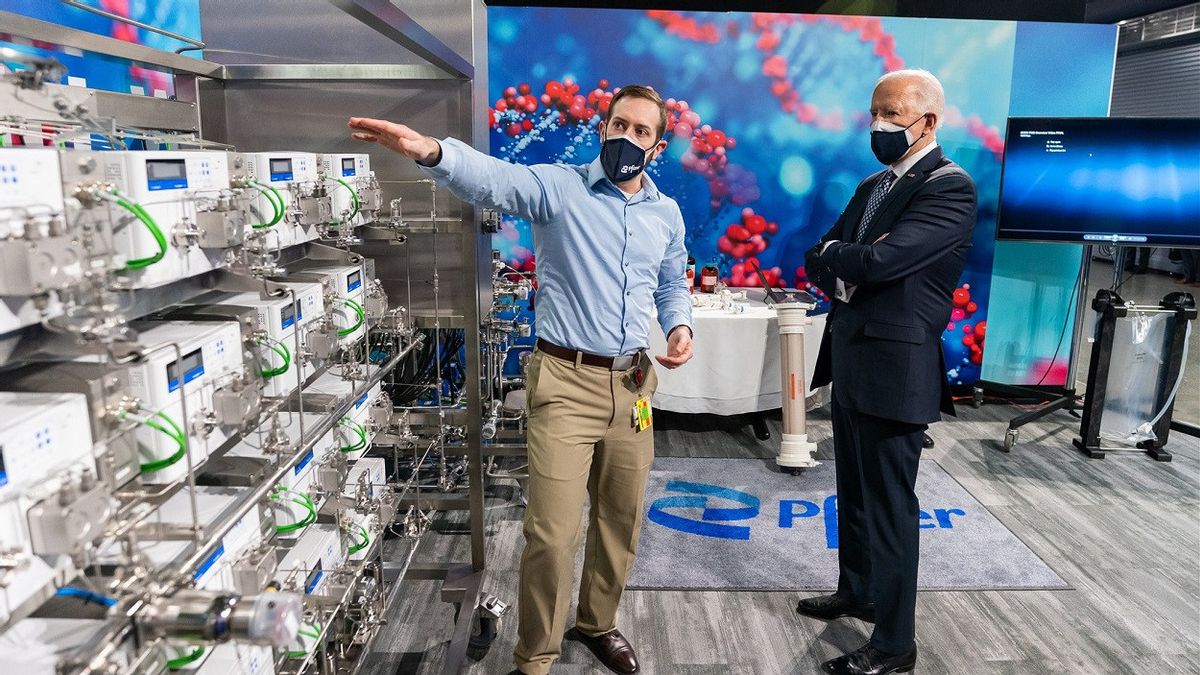JAKARTA - Pfizer Inc., and BioNTech SE announced Tuesday that they are starting clinical trials to test a new version of their vaccine specifically designed to target the Omicron variant of COVID-19, which is able to circumvent some of the protection provided by the original two vaccine dose regimens.
The company plans to test the immune response generated by the Omicron-based vaccine, both as a three-injection regimen in unvaccinated people, and as a booster shot for people who have received two doses of their original vaccine.
They also tested the fourth dose of the current vaccine against the fourth dose of the Omicron-based vaccine, in people who received the third dose of Pfizer/BioNTech vaccine three to six months earlier.
The company plans to study fire safety and tolerability in more than 1.400 people who will be enrolled in the trial.
"While current research and real-world data suggest boosters continue to provide a high level of protection against severe illness and hospitalization due to Omicron. We recognize the need to be prepared as this protection diminishes over time, potentially helping to address Omicron and new variants in the future." Pfizer's head of vaccine research and development, Kathrin Jansen, said in a statement, citing Reuters January 26.
Depending on the amount of clinical trial data required by regulators, it may not be possible to realize current plans to launch an Omicron-targeted vaccine by the end of March, BioNTech said.
Pfizer said two doses of the original vaccine may not be enough to protect against infection from Omicron, and that protection against hospitalization and death may be reduced.
Meanwhile, the United States Centers for Disease Control and Prevention (CDC) said the third dose of mRNA vaccines such as the Pfizer/BioNTech vaccine had provided 90 percent protection against hospitalization for COVID-19.
Some countries have started offering additional booster doses, but recent research from Israel shows that while the fourth dose of the mRNA vaccine raises antibodies, the levels are not high enough to prevent Omicron infection.
Separately, the European Medicines Agency (EMA) said Friday, international regulators want data from clinical studies such as those conducted by Pfizer and BioNTech before approval of new vaccines.
The EMA said this study should show the new vaccine produces more neutralizing antibodies in the blood than current vaccines and may also protect against new variants of concern.
SEE ALSO:
BioNTech declined to comment on what type of data it was asked to submit to regulators.
It said analysis of antibodies generated by boosters targeting the Omicron variant would help answer whether a vaccine would be needed that treats more than one variant at a time. It hopes to show antibodies neutralizing the spectrum of variants.
However, some scientists question whether any changes are needed at this time.
"The purpose of this vaccine is to protect against serious disease. To date, this vaccine has done that, including protection against Omicron," said Dr. Paul Offit, infectious disease expert at the University of Pennsylvania.
The English, Chinese, Japanese, Arabic, and French versions are automatically generated by the AI. So there may still be inaccuracies in translating, please always see Indonesian as our main language. (system supported by DigitalSiber.id)


















